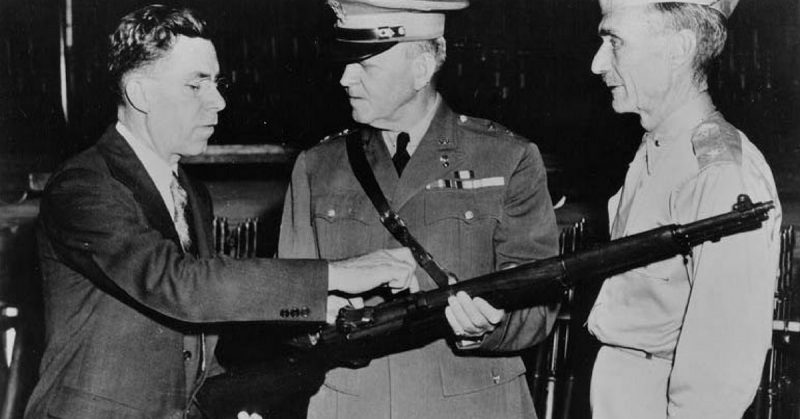The M1 Garand rifle is a 0.30 caliber semi-automatic US rifle designed in 1928 by Canadian-American firearms designer John Garand. It was in service as the standard US service rifle from 1936 to 1957. Thousands of these rifles were also lent or supplied to the allies of the United States as foreign aid.
The M1 was still in use in large numbers until 1976 and today it is mainly used for drill purposes or by collectors. From 1936 to 1957 and in the 1980s, a total of 6.25 million M1 Garand rifles were produced and per unit cost was $85 during WWII.
At the beginning of WWII, most armies used bolt action rifles. In a bolt action rifle, the weapon’s bolt is operated manually with a small handle. After firing, the spent cartridge case is withdrawn and ejected manually using the bolt action.
Though bolt action rifles could allow powerful cartridge chambering, it has a lower rate of fire than the semi-automatic weapons. The M-1 enabled US infantry to have a distinct superiority in firefights against the Axis forces as the standard rifles of Axis armies were the slow firing bolt action rifles.
The M1 is a gas-operated, air-cooled, clip-fed, shoulder-fired, semi-automatic rifle. Which means that the expanding gas of the previously fired round gives the power needed to cock the rifle and chamber the succeeding round; air cools the barrel. It is loaded by inserting an en bloc ammunition clip.
Semi-automatic means the rifle fires one round each time the trigger is pulled. M1 is chambered for .30-06 Springfield rifle cartridges (7.62x63mm) or 7.62×51mm NATO cartridges.
https://www.youtube.com/watch?v=6HlssyzY45c
